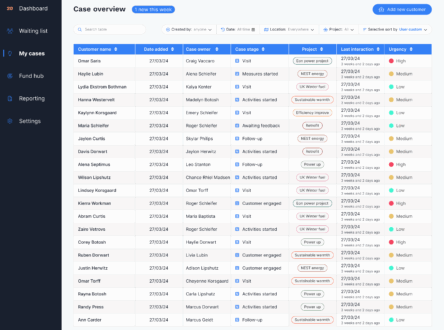The Brief
The CHS Alliance were looking for a tool that would enable CHS Alliance to scale up a ‘harmonised’ reporting scheme (HRS) on sexual exploitation, abuse and harassment (SEAH) that they had developed for the aid sector. The need for a harmonised reporting tool came from the fact that global and local aid agencies were using different systems, approaches and data to report incidents of sexual exploitation, abuse and harassment.
CHS Alliance had already run a pilot for the Harmonised Reporting Scheme for a year utilising their MS Office suite tools such as Excel and Sharepoint, prior to approaching Outlandish. During their pilot CHS Alliance had identified ‘good enough’ data fields to start to fully develop an online, scalable tool which could automate some of the reporting and create aggregated dashboards. These dashboards would be visible by the Harmonised Reporting Scheme participants to inform their actions to reduce risks of SEAH, proactively prevent incidents, and better respond.


The Client
The CHS Alliance is a global alliance of humanitarian and development organisations committed to making aid work better for people.
Forming in 2015, the alliance brought together the Humanitarian Accountability Partnership (HAP) International, a multi-agency initiative working to improve the accountability of humanitarian action to people affected by disasters and other crises. Together, the CHS Alliance and HAP have more than two decades of experience in supporting the sector to apply standards and good practices.
The alliance are headquartered in Geneva and maintains a presence in London. They are a movement to strengthen accountability and put people affected by crisis at the heart of what they do by applying the Core Humanitarian Standard (CHS).
Our Solution
CHS Alliance already had a lot of Ideas to bring to the table following their own pilot. These were refined based on Product Phase, budget and customisations available in the software selected, Salesforce.
For launch, Outlandish built a secure, multilingual and user-friendly data reporting interface which enabled member organisations to maintain accurate data on SEAH incidents. The consistent and simple data collection format helped member organisations to feel confident to submit their SEAH data even if they were not digitally literate.
Outlandish’s solution was able to collect and aggregate anonymised global data about incidents of SEAH within member organisations; the dashboards and visualisations showed trends which has allowed the CHS Alliance to analyse and develop biannual reports and therefore supports the aid sector’s understanding of how to better respond to and prevent such incidents
The Tech
The decision to use Salesforce was based on CHS Alliance’s technology stack already implemented within the organisation.
Going On
The pilot phase is now complete and the tool has contributed to an increase in the number of organisations participating in the Harmonised Reporting Scheme, reporting SEAH incidents onto the platform every 6 months or ad hoc across the year.
Meanwhile, Harmonised Reporting Scheme participants are supporting the development of the tool by feeding back, contributing to the product backlog and the tool’s future.
In addition to this, in November 2024, the tool was recognised as a Finalist in the Webby Anthem awards!
Testimonials
CHS Alliance
“I truly appreciated Outlandish’s proactive efforts to understand our project, objectives, and the type of users who would be utilizing the product. Their commitment to maintaining constant dialogue and tailoring their work to meet the needs of both our team and our users enabled us to achieve a final product that has received highly positive feedback from our users.“
CHS Alliance Donor
“The UK’s FCDO supports the SEAH data harmonisation scheme. It is a valuable tool to encourage reporting, analyse trends, manage risk, develop policy and improve transparency and accountability at global and country levels. Our partners can use the information from the scheme’s data fields to inform us about SEAH allegations. This makes reporting easier. We may require further information for case management purposes. We continue to expect prompt reporting as set out in our funding agreements.”Safeguarding Unit, Foreign, Commonwealth & Development Office









